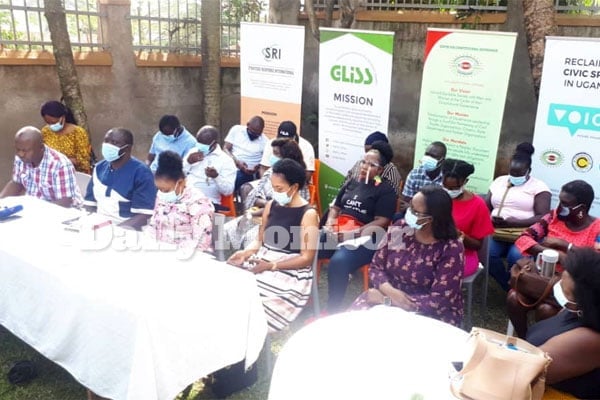Prime
Who do Uganda’s NGOs represent?

Permit me to respond and provide some answers to Andrew Mwenda’s commentary in the media last month on the above subject matter relating to NGOs. I have worked in the NGO world for over 7 years and 10 years in a state institution namely the Uganda Human Rights Commission(UHRC) and therefore relatively conversant with the subject matter.
We derive our mandate from the supreme law of the land known as the Constitution of the Republic of 1995 as amended. Article 38 is explicit- It provides that citizens have the right to participate in the governance affairs of their country through their elected representatives or civic organisations (read NGOs). Second, the national objectives and direct principles of the state policy recognise the presence and role of NGOs and the government is obliged to respect their independence. So for some NGOs to take a stand on the EACOP pipeline whether you agree or disagree with them is neither here nor there! They are just exercising their right to freedom of thought and expression.
Third, there is no common stand or position as to whether to continue or stop EACOP by the sector but rather there is a common stand that there are human rights issues relating to the environment, ecosystem and the right to property that we feel or need that should be addressed by duty bearers and multi nationals under the global compact on business and human rights. There is nothing like a common voice speaking to halt the EACOP! And no western country has advised or funded us to do so, we have a stake in this country and know what is good for national interests or bad for the country.
The author further raises questions related to accountability- NGOs in Uganda are not homogeneous and you can verify this from the regulator-The NGO Bureau. Speaking of the National Coalition of Human Rights Defenders Uganda (NCHRD-U) we are a corporate body and accountable as per our Constitution to our members commonly referred to as human rights defenders registered under the Coalition through the highest decision making body known as the Annual General Assembly that meets every year. We are not accountable to every Tom Dick and Harry who do not know what we do or stand for.
Under the law known as the NGO Act and many other laws we are also accountable to the NGO Bureau, the URSB, the FIA and many other regulatory bodies, however cumbersome. Andrew further poses how do NGOs claim to represent affected persons on EACOP? NGOs working on the environment in the Albertine or outside need not to be people or persons directly affected by the EACOP project, they act on behalf of the victims or projected affected persons who have no understanding of their rights and responsibilities.
They are powerless and voiceless and therefore need support from NGOs to speak truth to power and that’s why national , regional and international mechanisms give them an audience. This audience is what Mwenda interprets conveniently as hypocrisy 101 by fifth columnists.
NGOs are accountable to donors who give them money to do their work but not push a negative narrative against their own governments. NGOs do defend the government when there lies being peddled about the government. No donor has ever come to the NGO I represent to tell me what stand or position I should take on EACOP and neither has the Government ever interfered with our work to say stop writing or commenting about this human rights issue.
Last but not least, if NGOs were what Mwenda portrays them to be, we would not be having them recognised in our Constitution nor other subsidiary legislation. NGOs contribute to national development through different pillars of the NDP 3 that define a country’s national priorities and the different SDGs.
We are the second formal employer after the Government! As a senior journalist, this should be common knowledge to Andrew and any other likeminded.
The author, Bob R. Kirenga, Executive Director -National Coalition of Human Rights Defenders -Uganda




